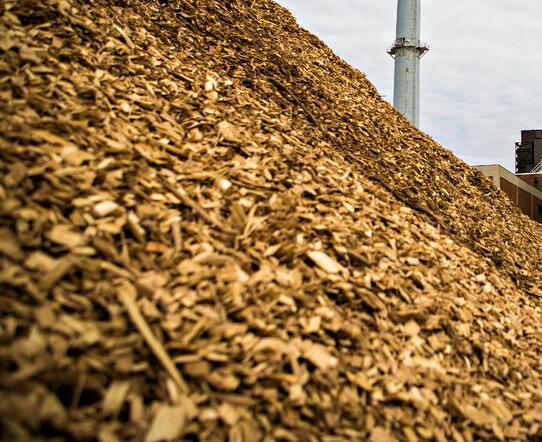by Kishan Karunakaran, CEO, Buyofuel
India is accelerating on its way to become the world's strongest economy. Presently, the third largest consumer of primary energy globally after the US and China, it is adopting new measures to lower reliance on fossil fuels for energy security and sustainability. In this direction, the Indian government is taking concrete steps and has set a target of reducing its carbon footprint by 30-35% by 2030. This has created an opportunity for the biofuels industry to play a crucial role in India’s transformation to clean energy. A lot has been done so far however, there are still myriad challenges needed to overcome to address sustainable development goals quickly.
Biofuels are any fuel derived from biomass - plant or algae material or animal waste. It is considered to be a great source of renewable energy since the feedstock material of biofuels can be replenished readily. The first generation of biofuels includes conventional ethanol and biodiesel (from food crops) and firewood. The second generation comprises ethanol from lignocellulosic biomass, non-food crops, industrial wastes and residues streams, and drop-in fuels, including biomass, municipal solid waste, plastics, and industrial waste. The third generation includes compressed Bio-CNG from food wastes, biomass, MSW, sewage water, etc.
The world is getting warmer and in transition to clean energy, the biofuel industry is gaining significant attraction across all sectors. It has emerged as one of the best alternative fuels for petroleum-derived fuels to mitigate significant concerns of global warming raised due to fossil fuels as biofuels can practically replace all types of fossil fuels in all applications and mostly without any modifications to the system. Most importantly these biofuels are produced from wastes generated within India. Underlining the benefits, the Government of India has proposed a target of 20% blending of ethanol in petrol and 5% blending of biodiesel in diesel and replacing 20% of India’s coal consumption with biomass-based fuels by 2030 and introduced multiple initiatives to increase indigenous production of biofuels. This strategy envisages a strategic role for biofuels in the Indian energy basket.
However, it is pertinent to mention that to unlock the huge potential of the industry, there are myriad challenges to be addressed to leverage the opportunities and benefits of biofuels in India’s energy security goals. Currently, to boost participation on the ground level, there is no policy mechanism to incentivize farmers to collect and deliver biomass residue to a 2nd generation biofuel plant. Here, it becomes essential to establish a reliable and resilient supply chain for biomass covering the collection, transportation and handling of biomass feedstock. Additionally, there is also a need to design and operate the supply chain in a manner that maximizes economic benefits and lowers the harmful impact on the environment.
For a robust supply chain, incentivizing pellet manufacturing plants at the micro-level will help develop a more efficient system by reducing transit distance and time for shipping of wastes and fuels. The lack of government backing is a significant barrier to adopting the biodiesel program. Several steps like implementing legal actions to encourage use, mandatory biodiesel blending, and incentives towards the support of the biodiesel program are some of the necessities of the recent time to tackle the challenges.
Mandating used-cooking oil to be used for biofuel production will help improve biodiesel yield and avoid the reuse of cooking oil beyond recommended cycles in hotels & roadside food stalls. Proper digital traceability strategies are not implemented in cities for UCO, municipal solid waste management and improvement in this area would help in the growth of the waste-to-energy sector.
Moreover, upskilling, training and education through national schemes or programs can greatly benefit the industry in utilising human power. The policymakers should start taking steps to facilitate the industry for the longer term by creating a mechanism whereby cooperatives or farming communities could be involved in collecting, storing, and delivering residues.
On the global panorama, the food versus fuel debate has portrayed the biofuel industry in a bad light. Constructive dialogues have to be initiated quickly as fuel reserves are getting depleted. Important to note that India’s biofuel production policy mandates not employing any edible feedstock for bioenergy production. A strong entrepreneurship wave has gripped India and every sector is reaping the benefits of it. It is important to encourage entrepreneurs who can actually transform biofuels into a profitable business for revenue generation and employment creation mainly in rural areas. The government should actively encourage the players to investments in this sector and also for creating competition among bioenergy producers.
With global orders changing rapidly, India needs to ramp up its energy transition to clean sources to develop a sustainable ecosystem. The biofuels industry is a huge opportunity which India shouldn't miss.






